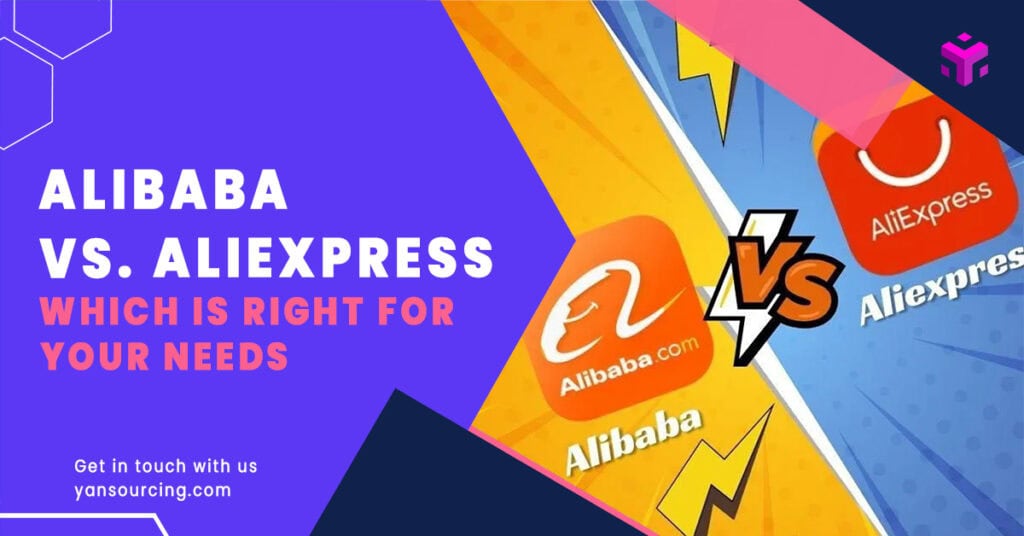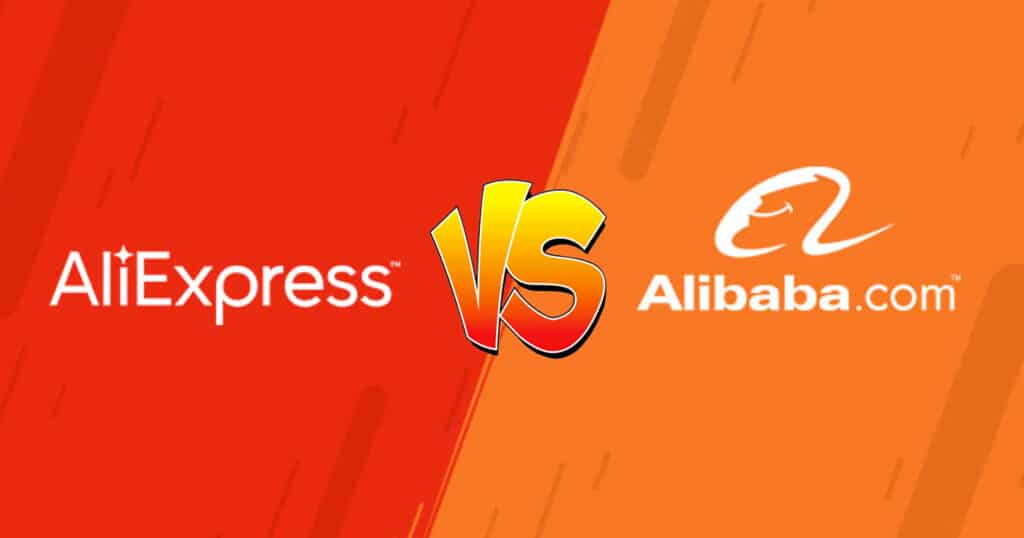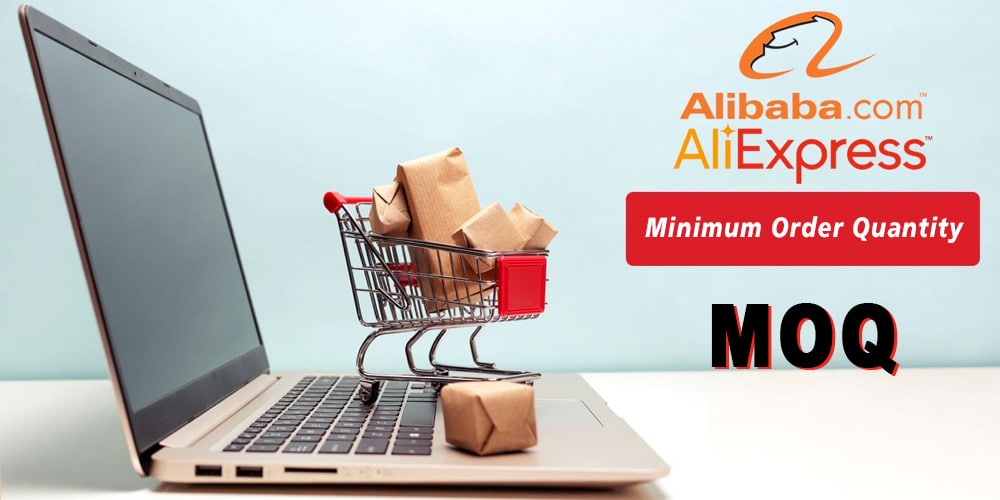
Choosing the right platform for sourcing goods from China can make or break your business, whether you’re launching a new e-commerce store, scaling your operations, or optimizing wholesale procurement.
Alibaba and AliExpress are both powerhouses under the Alibaba Group umbrella, yet serve strikingly different buyer types, order sizes, and strategic needs.
This in-depth comparison unpacks their models, core features, and practical trade-offs—so you can pick with confidence.
Understanding the Platforms
- Alibaba: Primarily a B2B (business-to-business) marketplace aimed at bulk and customized purchases. Best suited for businesses seeking scalable procurement, supply chain integration, and private label or OEM manufacturing.
- AliExpress: A B2C (business-to-consumer) retail platform specializing in single-unit or small-batch purchases. Ideal for small businesses, dropshippers, or first-time importers looking for ready-to-ship products with minimal commitment.
Key Comparison Table: Alibaba vs AliExpress
| Dimension | Alibaba | AliExpress |
|---|---|---|
| Business Model & Buyers | B2B: Bulk, wholesalers, brands, e-com SMEs | B2C: Individuals, startups, dropshippers, side-hustlers |
| MOQ (Minimum Order Quantity) | Usually 50–500 units (negotiable); samples often available | As low as 1 piece; no minimums required |
| Customization/OEM | Full private label, OEM, packaging/customization widely supported | Rare; mostly off-the-shelf items, limited/no customization |
| Supplier Verification | Verified/Gold Supplier badges, auditing, certification display, factory tours | Seller ratings, badges, basic review history |
| Payment Methods | Trade Assurance (escrow), credit card, PayPal, bank transfer (T/T), Alipay | PayPal, credit/debit, Alipay, local cards |
| Price Structure | Negotiable; wholesale pricing. Payment/transfer fees and shipping extra | Fixed retail price (includes or displays shipping); coupons available |
| Shipping & Lead Time | Freight (air/sea): 3–60 days; samples faster if in-stock | ePacket: 7–20 days, Premium: 3–10 days, Standard: 10–45 days |
| Buyer Protection & Disputes | Trade Assurance (item/delivery guarantee); dispute process; returns difficult/costly | Escrow holds payment, fast refund for most low-value errors, flexible disputes |
| Returns & Refunds | Slow/complex, costly international shipping. Some issues non-returnable | Fast for low-value goods, often no return required |
| After-Sales Service | Varies by supplier; stronger for verified/factory-direct | Platform-moderated, quick but less in-depth |
| Risk Level (Scams/Quality) | Lower with due diligence; potential for fraud if skipping checks/off-platform | Higher product variance; less visibility on supply chain |
| Typical Use Cases | Private label brands, bulk import, retail chains, custom/OEM goods | Dropshipping, test buys, hobby/side hustle, small business |
Deep Dive: What Matters Most?

1. Business Model & Target Buyers
- Alibaba empowers established businesses and ambitious startups with tools designed for scaling—negotiations, samples, custom engineering, and vetting protocols.
- AliExpress removes minimums and complexity, letting users buy single pieces instantly for resale or testing. No negotiations, no business licenses required, and checkout is as familiar as any e-commerce store.
2. MOQ & Order Flexibility
- Alibaba: Even with flexible suppliers, expect a MOQ (commonly 50–500 units), with samples available for quality assurance. Bulk is mandatory for best pricing.
- AliExpress: Order as little as one unit. Perfect for dropshipping, market testing, or small-batch e-commerce.
3. Customization & Product Range
- Alibaba: Designed for private label, OEM/ODM, industrial procurement, and differentiated products. Extensive catalogues and supplier negotiation.
- AliExpress: Limited to pre-manufactured, ready-to-ship items; customization is almost non-existent.
4. Supplier Checks & Buyer Protection
- Alibaba: Platform badges (Gold/Verified) and Trade Assurance protect buyers, but due diligence is a must. Off-platform or unvetted trades carry higher risk.
- AliExpress: Built-in buyer protection holds payments in escrow, making quick refunds easy for most consumer disputes, especially for low-ticket items.
5. Logistics, Delivery & After-Sales
- Alibaba: Shipping can be tailored (air/sea freight, local warehousing if available, consolidated orders). Logistics and customs paperwork handled either by supplier or via third party/freight forwarder. Returns are difficult and may be expensive.
- AliExpress: Standardized, consumer-style delivery (ePacket, courier, tracked mail), with shipping included or transparent at checkout. Returns simple for cheap items, but slow support is a common user complaint.
6. Pricing & Fee Transparency
- Alibaba: Pricing is negotiable, and buyers must watch for hidden payment/transfer/logistics costs. Major cost breaks at higher quantity.
- AliExpress: Retail pricing is fixed and public, typically with free or low-cost shipping. Fewer surprises, but higher per-unit cost for businesses.
Pros and Cons Summary
Alibaba Pros:
- Lowest unit costs for bulk
- Customization, OEM, and professional negotiation
- Trade assurance and strong supplier vetting (with due diligence)
- Perfect for scaling or brand-building
Alibaba Cons:
- High MOQ, not beginner-friendly
- Complex logistics, slow/expensive returns
- Risk of supplier fraud if skipping vetting or going off-platform
- Language/cultural barriers possible
AliExpress Pros:
- No minimum order, instant buy
- Excellent for test orders, dropshipping
- Simple buyer protection (escrow, fast refunds for small orders)
- Predictable checkout, global reach
AliExpress Cons:
- Higher per-unit cost
- Little or no scope for customization
- Variable quality, less supplier information
- Slower support, limited compensation for large-scale issues
Common User Scenarios

Scenario 1: Dropshipper or Market Tester
AliExpress is your best friend—single pieces, low commitment, automated fulfillment tools for Shopify/WooCommerce, and refunds with few questions asked.
Scenario 2: Scaling E-commerce Seller
Start on AliExpress to validate products, switch to Alibaba as you require custom packaging, branded goods, and large-scale savings. Be prepared for more complexity in negotiation, workflow, and supplier due diligence.
Scenario 3: Wholesale/SME Professional Importer
Alibaba is the only real choice given advanced sourcing, customized products, and bulk import needs. Invest in supplier audits, sample orders, and clear contracts. Consider logistics partners to manage shipments and paperwork.
Risk & Dispute Considerations
- Alibaba: Use Trade Assurance, stick to verified suppliers, never send direct (off-platform) payments. Disputes subjected to evidence review and supplier negotiation; returns/refunds can be protracted and costly.
- AliExpress: Most disputes for cheap items are resolved without product return. Buyer satisfaction is high for low-value refunds, but support struggles with complex problems. Product inconsistencies and long delivery times are chief complaints.
FAQ: Key Buying Questions
1. Can I buy just one piece from Alibaba?
Only rarely—most suppliers require an MOQ, though some may offer paid samples.
2. Is one platform safer than the other?
Both have buyer protection (Trade Assurance, escrow), but due diligence is critical on Alibaba. AliExpress favors buyer convenience for small orders but offers less recourse for high-value/business disputes.
3. What about hidden costs or taxes?
Alibaba: Watch out for payment/banking fees, international shipping, and import taxes/duties. AliExpress: Most costs disclosed at checkout; buyer still responsible for import duties if over customs limits.
4. Can I find the same suppliers on both platforms?
Sometimes, but they may have distinct product lines, MOQs, and pricing. Direct negotiation and customization are exclusive to Alibaba.
Conclusion: How to Choose?
- Choose Alibaba if: You need bulk, want custom/private label, or are ready to scale and invest in vetting suppliers.
- Choose AliExpress if: You need to test-market, dropship, buy in very small quantities, or want e-commerce-style simplicity and buyer protection.
Recommendation: For new or low-risk buyers, start with AliExpress for small, fast orders. As your needs evolve, consider Alibaba’s power and flexibility for growing brands or high-volume import. Always conduct due diligence, and don’t hesitate to combine both platforms as your business journey progresses.
Ready to grow your business? Let us help you source products safely and efficiently. Visit Yansourcing to get started today.
